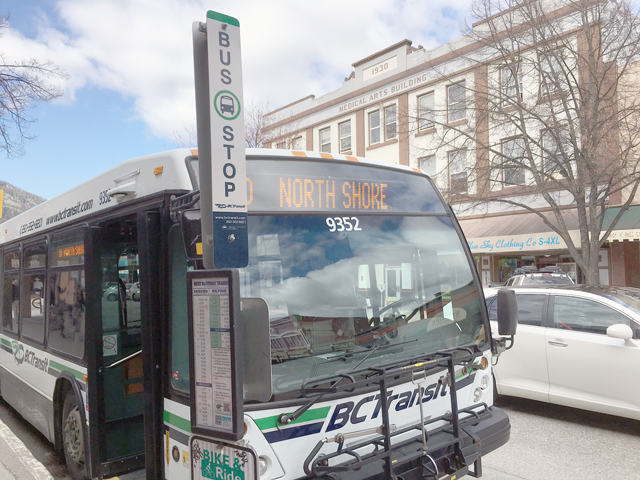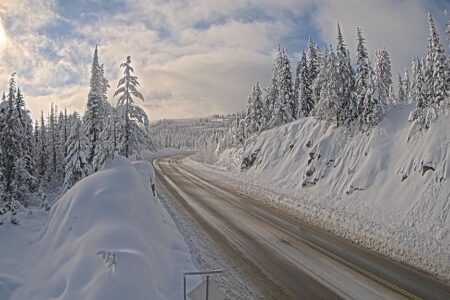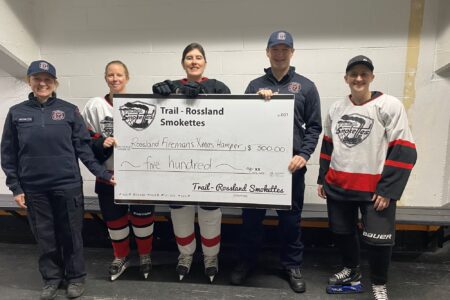RDCK plans more runs, one zone for bus fares
Transit users in the West Kootenay will soon be able to travel from one end of the region to the other for the price of a single bus ticket.
The Regional District of Central Kootenay has approved changes to simply the transit system’s structure, bringing in a single-zone system. While the price of a single ticket is going up slightly, it makes figuring the cost of getting from one point to another a lot simpler.
Right now riders have to calculate the cost of their ticket among 12 different fare types in three fare zones. Special top-ups make the system even more complicated for both riders and transit drivers.
“We’re just trying to simplify, make it easier,” says Castlegar Mayor Lawrence Chernoff, the head of the RDCK’s Transit committee. “It really moves us into the realm of what everyone else does.”
Multi-zone fare systems are not recommended by BC Transit guidelines, Chernoff points out.
“This is what happens in the rest of the province. So now we’re not ‘here’s West Kootenay transit, it’s an entity unto itself’. No. It’s much simpler.”
Chernoff says he’s expecting ridership will increase, even with the 25-cent increase in fares. He says considering the cost of travel in the region, it’s a deal for commuters.
“Absolutely. Look at the fares. Do you think you can travel in your car from Castlegar to Nelson for $2.25? Not even close, right?”
New routes proposed
The RDCK board also received a second report, calling for expansion to the service. If agreed to, routes will be extended, new days added to some routes and new runs added at peak times on others. Among the proposed improvements are:
- A run would be added on Route 10 (North Shore) and Route 20 (Slocan Valley) at morning peak hours every weekday. The new runs would cut the service gaps from Balfour to Nelson and Slocan City to Nelson in half.
- A new run between downtown Nelson and Blewett (Route 14) in the afternoon would be a help to afternoon commuters, while Perrier Road residents would see an introductory service three times a day on weekdays.
- An added run on Route 72 between Salmo and Nelson on Tuesday and Thursday afternoons would be a boon for people wanting to commute home at the end of the work day. Route 72 would also see an added service day with three round trips.
- An additional service day would be added to the Kaslo-Balfour Route 76 as well.
- There are also planned extensions to the route from Nakusp to Slocan (Route 52), with a new service day added to the route, and an extension of the route from Silverton to Slocan, allowing commuters to connect with the new morning Slocan-Nelson trip.
Transit officials hope the changes to the rate structure and new routes will result in increased ridership. Locals are using transit more and more every year, with 750,000 using buses in 2015-16, growing at about 11 per cent over the last three years. The last simplification of rate structures in 2013 saw an increase in ridership.
Chernoff thinks the service improvements will also prompt more people to try the bus.
“As new routes come along, new frequencies come in, we’re just trying to make it better for everybody,” he says. “We look at ridership, ridership continues to grow, as we see that we say, there’s and opportunity, here’s an opportunity, can we get other people on the bus?”
Seniors ignored?
One director voted against the changes. Area H director Walter Popoff, who sits on the boards of provincial senior’s organizations and poverty organizations, said he was concerned seniors on fixed income, who have to rely on transit, would be negatively affected by the 25-cent increase.
“No consideration is begin given to seniors who only receive old age security and GIS. Many are living below the poverty line, and a few cent’s increase means a lot to them,” he says.
“It is something I didn’t see in the report, didn’t see consideration of them, so I’d like BC Transit and the committee to see if there’s a break for seniors. I see there’s a break for students, but no consideration for seniors, that’s my concern.”
However, other directors pointed out a $45 annual bus pass for seniors still make transit the best option for seniors in rural areas.
The money to pay for the service improvements come from a $12.7 million provincial government fund created in February 2016 targeting rural services like the West Kootenay.
With board approvals received, the fare changes should be implemented by the summer.
The board of directors also approved the implementation of a day pass. That should be introduced sometime in the fall of 2017.
























